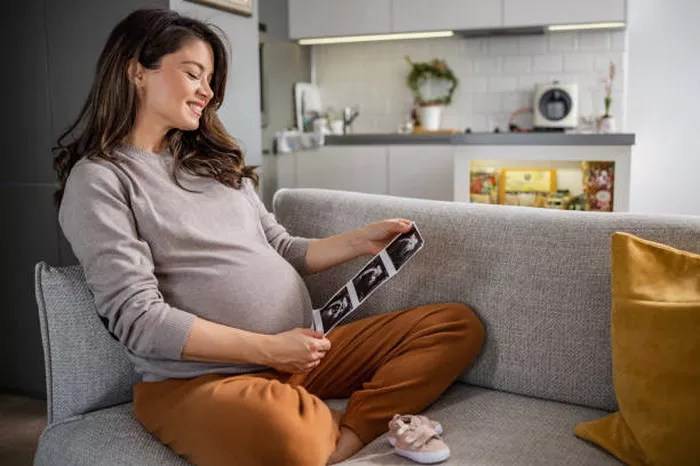Pregnancy is a time of significant physical change and adaptation for expectant mothers. One area of concern that often arises is how different sitting positions may impact the developing baby in the womb. This article explores the effects of various sitting postures on pregnancy, the potential risks involved, and best practices for comfort and health.
The Anatomy of Pregnancy
The Womb and Its Environment
The uterus, where the baby develops, is a muscular organ that expands as the fetus grows. It is cushioned by amniotic fluid, providing a protective environment. As the baby develops, space becomes limited, making the positioning of the mother increasingly important.
The Role of Posture in Pregnancy
Posture plays a crucial role in overall comfort and health during pregnancy. Poor posture can lead to discomfort, pain, and other complications, affecting both the mother and the baby. Understanding how sitting positions can influence these factors is essential for expectant mothers.
Common Sitting Positions During Pregnancy
Cross-Legged Sitting
Many women find comfort in sitting cross-legged. However, this position can lead to strain on the lower back and pelvic region, especially in later stages of pregnancy. Prolonged periods in this position may restrict blood flow and contribute to discomfort.
Slouching
Slouching or leaning forward while sitting is common, particularly in office environments. This position can lead to back pain and may also compress the abdominal area, potentially affecting circulation to the fetus.
Upright Sitting
An upright sitting position is generally recommended for comfort and health. Keeping the back straight and shoulders relaxed allows for better blood circulation and may help prevent back pain.
Reclining Positions
Reclining in a chair or on a couch can offer relief for some pregnant women, especially during the third trimester. However, it’s important to maintain a proper angle to avoid putting pressure on the lower back and pelvis.
Effects of Sitting Positions on the Baby
Circulation and Blood Flow
One of the primary concerns with sitting positions during pregnancy is their effect on circulation. Poor circulation can lead to reduced oxygen and nutrient delivery to the fetus, potentially affecting growth and development. Positions that compress blood vessels, such as sitting cross-legged or slouching, can exacerbate this issue.
Pressure on the Uterus
Certain sitting positions can exert pressure on the uterus, which may lead to discomfort or even cramping. This is especially true in later pregnancy stages when the baby is larger and space is limited.
Fetal Positioning
The way a mother sits can also influence the baby’s positioning in the womb. Certain postures may encourage optimal fetal positioning, which can facilitate a smoother delivery. Conversely, poor posture may contribute to malpositioning, such as breech presentation.
Potential Risks of Poor Sitting Postures
Back Pain and Discomfort
Pregnant women often experience back pain, which can be exacerbated by poor sitting positions. Slouching or sitting for extended periods without support can lead to muscle strain, making discomfort more pronounced.
Pelvic Pressure and Discomfort
Sitting positions that put excessive pressure on the pelvis can lead to discomfort, especially in later pregnancy. This pressure can also contribute to conditions such as pelvic girdle pain, which affects mobility and quality of life.
Nerve Compression
Certain sitting positions may lead to nerve compression, resulting in numbness or tingling in the legs and feet. This is particularly concerning if it affects the sciatic nerve, leading to sciatica, which can cause significant discomfort.
Best Practices for Comfortable Sitting During Pregnancy
Maintain Good Posture
To promote comfort and health, pregnant women should focus on maintaining good posture while sitting. This includes:
Keeping the back straight and shoulders relaxed.
Using a supportive chair with proper lumbar support.
Keeping feet flat on the floor or using a footrest.
Take Regular Breaks
Prolonged sitting can exacerbate discomfort and circulation issues. Taking regular breaks to stand, stretch, and walk can alleviate pressure and improve blood flow.
Use Supportive Cushions
Using cushions or pillows for support can enhance comfort while sitting. Lumbar pillows can provide extra support for the lower back, while cushions can help distribute weight evenly.
Adjust Seating Arrangements
Women should consider adjusting their seating arrangements to find what works best for them. This may involve using ergonomic chairs or reclining seats that provide proper support.
Activity and Movement Considerations
Incorporating Movement
In addition to being mindful of sitting positions, incorporating movement into daily routines is essential. Gentle activities such as walking, prenatal yoga, and swimming can enhance overall comfort and well-being.
Exercises for Strength and Flexibility
Engaging in exercises that promote strength and flexibility can help alleviate discomfort associated with poor sitting posture. Exercises targeting the core, back, and pelvic floor can be particularly beneficial.
Seeking Professional Guidance
Consulting Healthcare Providers
Expectant mothers experiencing significant discomfort or concerns about their sitting positions should consult healthcare providers. Medical professionals can offer personalized advice and may refer patients to physical therapists or other specialists.
Prenatal Classes
Many hospitals and community centers offer prenatal classes focusing on posture, movement, and relaxation techniques. These classes can provide valuable information and support for navigating pregnancy comfortably.
See Also: When to Stop Lying on Your Stomach During Pregnancy?
Conclusion
Sitting positions can indeed affect both the mother and baby during pregnancy. By understanding the implications of various postures and adopting best practices, expectant mothers can enhance their comfort and well-being.
Maintaining good posture, taking regular breaks, and incorporating movement into daily routines are vital for promoting optimal health. As pregnancy progresses, being proactive about sitting positions and overall body mechanics can lead to a more enjoyable and comfortable experience.
Ultimately, the well-being of both mother and baby is interconnected, making it essential to prioritize healthy habits throughout pregnancy.
You Might Be Interested In:


